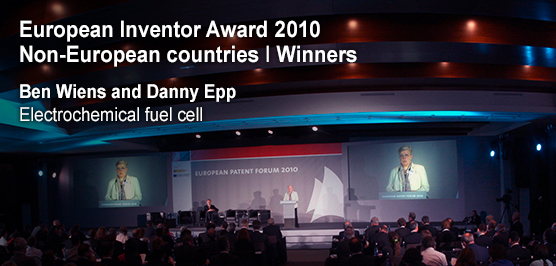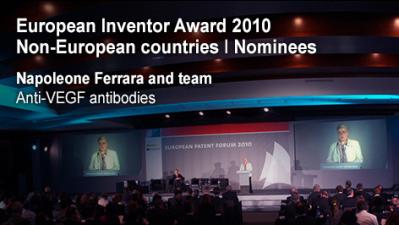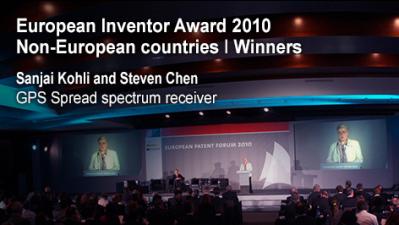Ben Wiens, Danny Epp
Electrochemical fuel cell
The burning of fossil fuels is still a major cause of greenhouse gases. According to a recent European Union study, energy generation accounts for 28% of all greenhouse gas emissions in Europe, while the transport sector accounts for 21%.
Fuel cells are a clean alternative to fossil fuels for powering vehicles and producing electricity - at least in theory. In practice, their high price and high operating temperatures, which mean energy‑intensive cooling, have stopped many industries from switching to fuel cells.
Enter the inventions of Canadian engineers Ben Wiens and Danny Epp: their new fuel cells use a thin plastic film, called a solid polymer membrane, instead of heat-intensive ceramic elements, which enables them to operate at temperatures below 100°C, without needing extra cooling.
Based on this technology, Ballard Power Systems launched the first commercially viable hydrogen fuel-cell system in 2001. The product has brought Ballard steady growth and success: in 2009, the publicly-traded company had 489 employees and a turnover of $46.7m.
Marketed as the FCgen 1.6 kW Backup Power System, the fuel cells provide backup power during power outages for telecommunications stations in Canada, the EU and India. The cells replace lead acid batteries, which are highly sensitive to temperature and lose their charge.
Ballard Power Systems has also developed fuel cells to power zero-emission public buses. To get this development "on the road" - and into mass production - Ballard partnered with international automotive companies Daimler-Benz and Ford. A spin-off company, Automotive Fuel Cell Cooperation, emerged from this collaboration when Daimler and Ford purchased Ballard's automotive division in 2007 to expand their leading position in fuel cell technology.
After going into mass production in 2004, fuel-cell buses are now in operation in 15 cities around the world, including Amsterdam, Barcelona and London, and have to date carried 7 million passengers.
Vancouver added 20 fuel-cell buses to its public transport fleet for the 2010 Winter Olympics. This is expected to reduce greenhouse gas emissions by 1 800 tonnes a year.
Contact
European Inventor Award and Young Inventors Prize queries:
european-inventor@epo.org Subscribe to the European Inventor Award newsletterMedia-related queries:
Contact our Press team#InventorAward #YoungInventors


